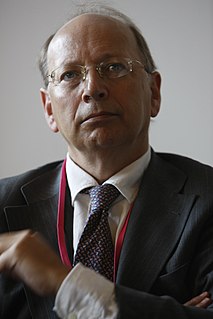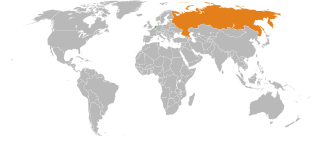
The Netherlands Armed Forces are the military services of the Kingdom of the Netherlands. The core of the armed forces consists of the four service branches: the Royal Netherlands Navy, the Royal Netherlands Army, the Royal Netherlands Air Force and the Royal Netherlands Marechaussee. The service branches are supplemented by various joint support organisations. In addition, local conscript forces exist on the Dutch Caribbean islands of Aruba (AruMil) and Curaçao (CurMil). These operate under the auspices of the Royal Netherlands Navy and the Netherlands Marine Corps. The armed forces are organisationally part of the Ministry of Defence.

The foreign policy of the Netherlands is based on four basic commitments: to the Atlantic cooperation, to European integration, to international development and to international law. While historically the Kingdom of the Netherlands was a neutral state, since 1945 it has become a member of NATO, the United Nations, the European Union and many other international organizations. The Dutch economy is very open and relies on international trade. During and after the 17th century—its Golden Age—the Dutch built up a commercial and colonial empire. It was a leading shipping and naval power and was often at war with England, its main rival. Its main colonial holding was Indonesia, which fought for and achieved independence after 1945. The historical ties inherited from its colonial past still influence the foreign relations of the Netherlands. Foreign trade policy is handled by the European Union. The Dutch have been active in international peacekeeping roles.

Netherlands New Guinea was the western half of the island of New Guinea while it was a part of the Dutch East Indies until 1949, later an overseas territory of the Kingdom of the Netherlands from 1949 to 1962. It was commonly known as Dutch New Guinea. It contained what are now Indonesia's two easternmost provinces, Papua and West Papua, which were administered as a single province prior to 2003 under the name Irian Jaya, and now comprise the Papua region of the country.

The Federation of Dutch Trade Unions is an national trade union centre in the Netherlands. In addition to member unions, workers in many sectors can join the FNV directly.

The Royal Netherlands Academy of Arts and Sciences is an organization dedicated to the advancement of science and literature in the Netherlands. The academy is housed in the Trippenhuis in Amsterdam.
Rugby league in the Netherlands is a minor sport played by five clubs.

The Dutch resistance to the Nazi occupation of the Netherlands during World War II can be mainly characterized as non-violent. The primary organizers were the Communist Party, churches, and independent groups. Over 300,000 people were hidden from German authorities in the autumn of 1944 by 60,000 to 200,000 illegal landlords and caretakers. These activities were tolerated knowingly by some one million people, including a few individuals among German occupiers and military.

Bernardus Johannes Maria "Ben" Verwaayen Officier in de Orde van Oranje Nassau is a Dutch businessman and a general partner of Keen Venture Partners. He was Chief Executive Officer of telecommunications company Alcatel-Lucent from 2008 to 2013.

Netherlands–Russia relations is the relationships between the two countries, the Kingdom of the Netherlands and The Russian Federation. Russia has an embassy in The Hague, and the Netherlands has an embassy in Moscow, a consulate in Saint Petersburg, and an honorary consulate in Yuzhno-Sakhalinsk.

Surinam, also known as Dutch Guiana, was a Dutch plantation colony in the Guianas, neighboured by the equally Dutch colony of Berbice to the west, and the French colony of Cayenne to the east.

The General Diamond Workers' Union of the Netherlands was a trade union for diamond workers in the Netherlands from 1894 to the 1920s.

Netherlands–Suriname relations refers to the current and historical relations between the Netherlands and Suriname. Both nations share historic ties and a common language (Dutch) and are members of the Dutch Language Union.
Forum for Democracy is a conservative and right-wing populist Eurosceptic political party in the Netherlands that was founded as a think tank by Thierry Baudet and Henk Otten in 2016. The party first participated in elections in the 2017 general election, winning two seats in the House of Representatives. In the 2019 provincial elections, it won the most seats out of any party, although 61 out of 86 representatives have since defected.
The General Dutch Metalworkers' Union was a trade union representing workers in the metal industry in the Netherlands.
The General Dutch Industrial Union of the Tobacco Industry was a trade union representing workers involved in making tobacco products in the Netherlands.
The Catering Union is a trade union representing workers in the hospitality sector in the Netherlands.
The Dutch Transport Workers' Union was a trade union representing workers in the transport industry in the Netherlands.
The Dutch Catholic Printing Union was a trade union representing workers in the printing industry in the Netherlands.
The General Dutch Association for Trade and Office Clerks and Travelling Salesmen (Dutch: Algemene Nederlandse Bond voor Handels- en Kantoorbedienden en Handelsreizigers, often known as Mercurius, was a trade union representing white collar workers in the Netherlands.
Anarchism in the Netherlands originated in the second half of the 19th century. Its roots lay in the radical and revolutionary ideologies of the labor movement, in anti-authoritarian socialism, the free thinkers and in numerous associations and organizations striving for a libertarian form of society. During the First World War, individuals and groups of syndicalists and anarchists of various currents worked together for conscientious objection and against government policies. The common resistance was directed against imperialism and militarism.










